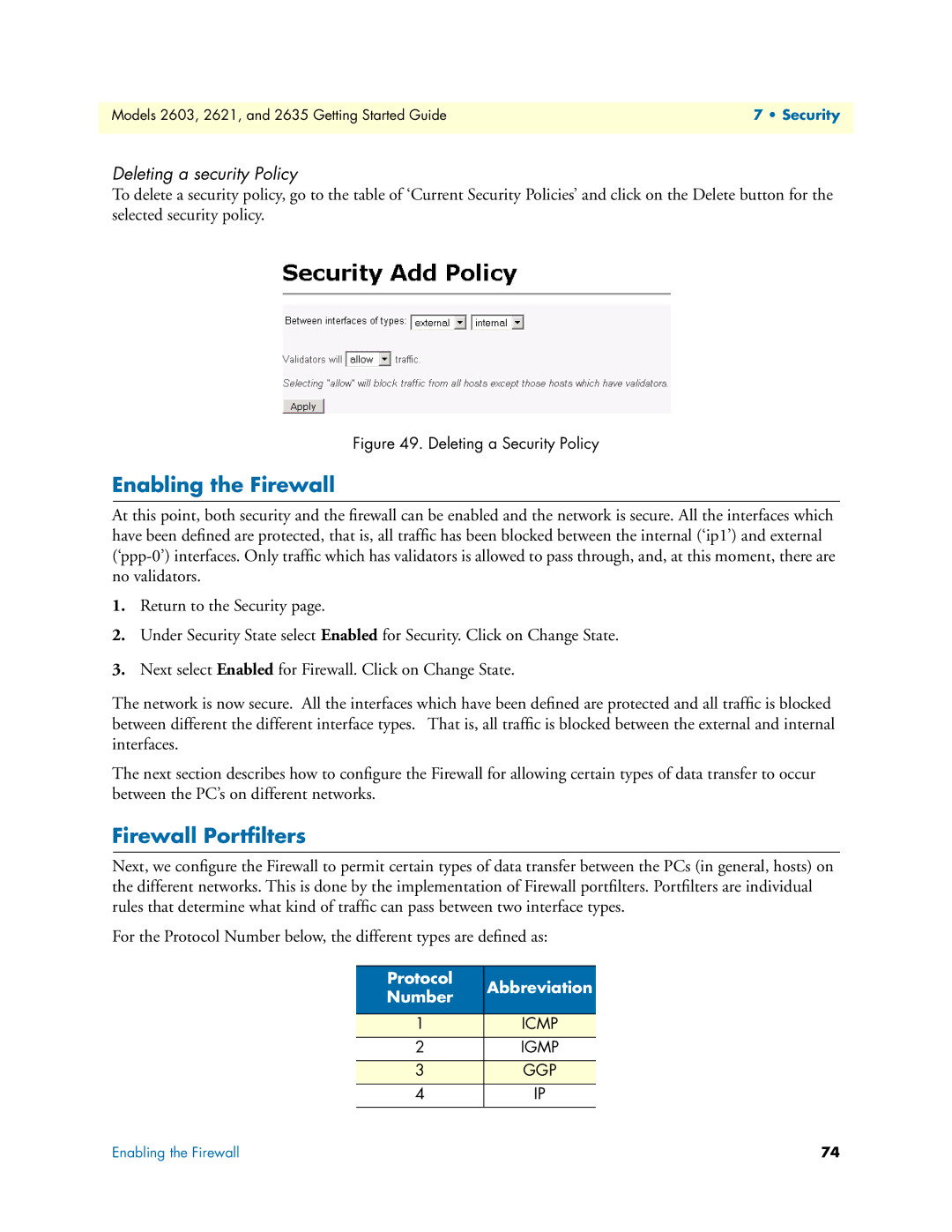
Models 2603, 2621, and 2635 Getting Started Guide | 7 • Security |
|
|
Deleting a security Policy
To delete a security policy, go to the table of ‘Current Security Policies’ and click on the Delete button for the selected security policy.
Figure 49. Deleting a Security Policy
Enabling the Firewall
At this point, both security and the firewall can be enabled and the network is secure. All the interfaces which have been defined are protected, that is, all traffic has been blocked between the internal (‘ip1’) and external
1.Return to the Security page.
2.Under Security State select Enabled for Security. Click on Change State.
3.Next select Enabled for Firewall. Click on Change State.
The network is now secure. All the interfaces which have been defined are protected and all traffic is blocked between different the different interface types. That is, all traffic is blocked between the external and internal interfaces.
The next section describes how to configure the Firewall for allowing certain types of data transfer to occur between the PC’s on different networks.
Firewall Portfilters
Next, we configure the Firewall to permit certain types of data transfer between the PCs (in general, hosts) on the different networks. This is done by the implementation of Firewall portfilters. Portfilters are individual rules that determine what kind of traffic can pass between two interface types.
For the Protocol Number below, the different types are defined as:
Protocol | Abbreviation | |
Number | ||
|
1ICMP
2IGMP
3GGP
4IP
Enabling the Firewall | 74 |
